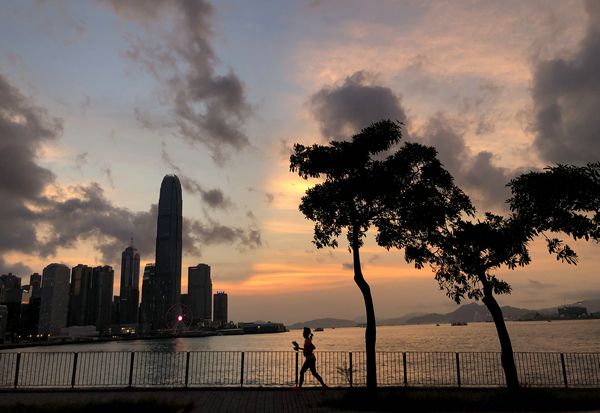COVID-19, the reawakening to simpler ways
The pandemic has shocked many people into abandoning long held habits and luxuries. In the face of too much danger, people are focusing on what really matters in life. Wang Yuke reports from Hong Kong.


Public spaces in need
Traveling abroad is inaccessible due to COVID-related restrictions, which is a nuisance for many, but Hong Kong people have rolled with it. They are returning to nature. During weekends since the restrictions were imposed, hiking tracks, fishing villages and beaches on the outskirts of Hong Kong have received more local visitors.
"Outdoor exercise has been part of daily routine for many locals. It's just that in the time of lockdown and work-from-home, people's need for an outdoor break gets stronger," says Samuel Wong, project officer of Designing Hong Kong. Shared public spaces are a vital part of the city fabric. "As a gathering spot for family and friends, public areas offer not only a physical space, but a welcome sense of togetherness and community." Especially in this trying time, Wong notes, people need the getaway to relieve stress and anxiety.
Non-essential travel is banned and likely will stay that way for a while. In Hong Kong, people aren't going to give up having fun but they are almost certain to demand more public spaces, reckons Wong.
Many residential buildings have rooftops. They can become gathering places. In the Netherlands, he says, rooftops of several residential buildings are linked to form a big recreation area. They're open to people from the community to mingle, swig beer, play music and do what feels like fun.
"In some old districts in Hong Kong, like Kowloon City, buildings are in close proximity and low-rise, which makes it feasible to construct an expansive rooftop across the buildings," says Wong.
"We need to look for chances to provide more breathing spaces in this highly dense city to meet the growing demand for outdoor spaces," says Hendrik Tieben, an associate professor of architecture at the Chinese University of Hong Kong. People are latching onto the fact that tourism pleasure does not have to derive from a long-haul or cross-continent travel, he says.
"There will be an attitude toward other forms of simple pleasures. People will likely turn to appreciate places close by, locally." He suggests pedestrianizing secondary roads that are not frequently used by vehicles, at least part of the day, or widening the sidewalks.
The pandemic is catapulting life into a space where value has meaning. It's a time that helps to awaken people to a clearer notion of "self". We are not our jobs, not the cars we drive, not how much money we make. As life has slowed down, there are rewards for cutting ourselves some slack and learning to appreciate once more the beauty of the things that have real meaning, but may have become lost, in the frenetic rush to "success and self-actualization".
Contact the writer at jenny@chinadailyhk.com




































